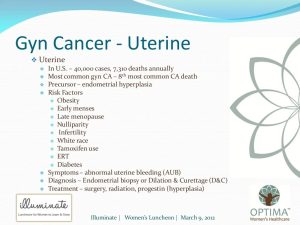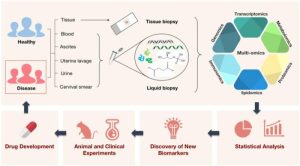
Step into the world of cutting-edge advancements in cardiovascular medicine, where innovation meets patient care in a dance of science and technology. Brace yourself for a journey through the latest breakthroughs, integrative approaches, and personalized treatments that are reshaping the landscape of heart health.
From wearable devices to genetic testing, this exploration will unveil the future trends and challenges that lie ahead in the realm of cardiovascular healthcare. Get ready to dive deep into the world of cardiovascular medicine like never before!
Importance of Advances in Cardiovascular Medicine
Advancements in cardiovascular medicine play a crucial role in the treatment of heart diseases, improving patient outcomes, and transforming cardiovascular healthcare.
Innovations in Treatment
With the development of new medications, procedures, and technologies, healthcare providers can now offer more effective treatment options for various heart conditions. This has significantly enhanced the quality of care for patients, leading to better outcomes and increased survival rates.
Improved Patient Outcomes
The integration of innovative approaches such as minimally invasive surgeries, personalized medicine, and remote monitoring has revolutionized the management of cardiovascular diseases. These advancements have not only optimized patient care but also reduced the risk of complications and improved overall quality of life.
Impact of Cutting-Edge Technologies
Emerging technologies like artificial intelligence, telemedicine, and wearable devices have reshaped the landscape of cardiovascular healthcare. These tools enable healthcare professionals to make more accurate diagnoses, monitor patients remotely, and provide timely interventions, ultimately leading to better outcomes and enhanced patient satisfaction.
Latest Technological Innovations in Cardiovascular Medicine
The field of cardiovascular medicine has seen significant advancements in recent years, thanks to cutting-edge technologies that are revolutionizing the diagnosis and treatment of heart conditions. From artificial intelligence to wearable devices and telemedicine, these innovations are enhancing patient care and improving outcomes.
Artificial Intelligence in Cardiovascular Medicine
Artificial intelligence (AI) is playing a crucial role in transforming the way cardiovascular diseases are diagnosed and treated. Machine learning algorithms can analyze vast amounts of medical data to identify patterns and predict potential heart issues. This allows healthcare providers to make more accurate diagnoses and develop personalized treatment plans for patients.
Wearable Devices and Telemedicine
Wearable devices such as smartwatches and fitness trackers are now equipped with advanced sensors that can monitor heart rate, blood pressure, and other vital signs in real-time. Patients can easily track their heart health and share this data with their healthcare providers remotely. Telemedicine platforms enable virtual consultations and remote monitoring, allowing patients to receive timely care without the need for in-person visits.
Integrative Approaches in Cardiovascular Care
Integrative approaches in cardiovascular care involve combining traditional and modern medicine to effectively manage heart conditions. These approaches consider lifestyle modifications, mental health, and stress management as important components of overall cardiovascular health.
Combining Traditional and Modern Medicine
Integrative approaches seek to combine the best practices of traditional medicine, such as herbal remedies and acupuncture, with modern medical interventions like medications and surgeries. This approach aims to provide patients with a comprehensive and personalized treatment plan that addresses their unique needs.
Role of Lifestyle Modifications
Lifestyle modifications, including changes in diet and exercise, play a crucial role in managing cardiovascular health. A healthy diet rich in fruits, vegetables, whole grains, and lean proteins, combined with regular physical activity, can help reduce the risk of heart disease and improve overall heart function.
Holistic Approach to Cardiovascular Care
Taking a holistic approach to cardiovascular care involves considering the interconnectedness of physical, mental, and emotional health. Stress management techniques, such as mindfulness meditation or yoga, can help reduce the impact of stress on the heart and improve overall well-being. By addressing mental health alongside physical health, patients can experience more comprehensive and effective care for their cardiovascular conditions.
Personalized Medicine in Cardiovascular Health
Personalized medicine in cardiovascular health involves tailoring treatments to an individual’s genetic makeup, allowing for more precise and effective care.
Role of Genetic Testing and Precision Medicine
Genetic testing plays a crucial role in personalized medicine for cardiovascular health. By analyzing an individual’s genetic profile, healthcare providers can identify specific genetic variations that may predispose a person to certain cardiovascular conditions. This information allows for the customization of treatment plans to address the unique needs of each patient. Precision medicine, which focuses on delivering the right treatment to the right patient at the right time, further enhances the effectiveness of cardiovascular care.
Reshaping the Future of Cardiovascular Medicine
The integration of personalized approaches in cardiovascular care is reshaping the future of medicine in profound ways. By leveraging genetic testing and precision medicine, healthcare providers can optimize treatment outcomes, minimize adverse effects, and improve overall patient well-being. As technology continues to advance, personalized medicine will play an increasingly important role in revolutionizing the field of cardiovascular health.
Future Trends and Challenges in Cardiovascular Medicine
The field of cardiovascular medicine is constantly evolving, with new trends and challenges shaping the way we understand and treat heart-related conditions. From emerging research to innovative treatment modalities, healthcare providers face a dynamic landscape that requires adaptability and innovation to provide the best care for patients.
Emerging Trends in Cardiovascular Research and Treatment
- Advancements in precision medicine: Tailoring treatment plans based on individual genetic makeup and risk factors to improve outcomes.
- Integration of digital health technologies: Utilizing wearable devices and telemedicine to monitor patients remotely and provide timely interventions.
- Focus on preventive care: Emphasizing lifestyle modifications, such as diet and exercise, to reduce the risk of cardiovascular diseases.
- Exploration of regenerative therapies: Investigating the use of stem cells and gene therapy to repair damaged heart tissue and improve heart function.
Challenges in Implementing Advanced Cardiovascular Therapies
- Cost and accessibility: Advanced treatments may be expensive and not readily available to all patients, leading to disparities in care.
- Ethical considerations: Balancing the benefits and potential risks of cutting-edge therapies to ensure patient safety and well-being.
- Training and education: Healthcare providers need specialized knowledge and skills to effectively deliver advanced cardiovascular care.
- Regulatory hurdles: Navigating complex regulations and approval processes for new treatments can delay their implementation in clinical practice.
Potential Future Developments in Cardiovascular Medicine
- Artificial intelligence in diagnosis and treatment: Harnessing AI algorithms to analyze complex data and optimize treatment strategies for individual patients.
- Nanotechnology for targeted drug delivery: Using nanoscale devices to deliver medications directly to affected areas of the heart, minimizing side effects.
- Genomic editing for genetic heart conditions: CRISPR technology may enable precise modifications to faulty genes associated with inherited heart diseases.
- Bioengineering solutions for heart failure: Developing bioengineered tissues and organs to replace damaged heart tissue and restore cardiac function.
HEALTHCARE
Regular health check-ups and screenings play a crucial role in preventing heart diseases and promoting cardiovascular health. Healthcare professionals are instrumental in educating patients about the importance of these preventive measures and guiding them towards a heart-healthy lifestyle.
Role of Healthcare Professionals
- Healthcare professionals, including doctors, nurses, and nutritionists, play a vital role in promoting cardiovascular health by providing patients with personalized care plans tailored to their specific needs.
- They educate patients on the risk factors associated with heart diseases, such as high blood pressure, high cholesterol, diabetes, and obesity, and recommend lifestyle modifications to mitigate these risks.
- Through regular consultations and follow-ups, healthcare professionals monitor patients’ progress, adjust treatment plans as needed, and provide ongoing support to help patients maintain a healthy heart.
Importance of Health Check-ups and Screenings
- Regular health check-ups and screenings help detect cardiovascular issues at an early stage when they are more treatable and manageable, leading to better health outcomes and reduced healthcare costs.
- Screenings for conditions like hypertension, high cholesterol, and diabetes can identify risk factors that may predispose individuals to heart diseases, allowing for timely interventions and preventive measures.
- Health check-ups also enable healthcare professionals to assess patients’ overall health status, evaluate their cardiovascular risk profile, and provide personalized recommendations for maintaining heart health.
Impact of Patient Education and Awareness Campaigns
- Patient education and awareness campaigns play a critical role in empowering individuals to take charge of their heart health by providing them with the knowledge and resources to make informed decisions about their well-being.
- By raising awareness about the importance of heart-healthy behaviors, such as regular exercise, balanced diet, stress management, and smoking cessation, these campaigns help individuals adopt healthier lifestyles and reduce their risk of heart diseases.
- Healthcare professionals can leverage patient education and awareness initiatives to engage with the community, dispel myths surrounding heart health, and promote preventive measures that can lead to better cardiovascular outcomes.
Health Addictions
Addiction can have a profound impact on cardiovascular health, as substance abuse can lead to a variety of heart-related issues. It is essential to understand the relationship between addiction and heart health in order to provide comprehensive care for individuals facing these challenges.
Substance Abuse and Cardiovascular Health
Substance abuse, whether it involves drugs, alcohol, or tobacco, can significantly increase the risk of cardiovascular disease. For example, stimulant drugs like cocaine can cause irregular heart rhythms, high blood pressure, and even heart attacks. Chronic alcohol abuse can weaken the heart muscle and lead to conditions like alcoholic cardiomyopathy. Smoking tobacco can damage the blood vessels and increase the risk of heart disease and stroke.
Supporting Individuals with Heart Conditions in Addiction Treatment Programs
Individuals with heart conditions who are struggling with addiction require specialized care to address both their substance abuse and cardiovascular health needs. Addiction treatment programs should incorporate medical monitoring and interventions to ensure the safety and well-being of these individuals. This may include close monitoring of vital signs, medication management, and coordination with cardiologists to optimize heart health during the recovery process.
Long-Term Effects of Addiction on Heart Health and Recovery
The long-term effects of addiction on heart health can be significant and may persist even after achieving sobriety. It is crucial for individuals in recovery to prioritize their cardiovascular health through lifestyle changes, regular medical check-ups, and ongoing support. Addressing the damage caused by substance abuse and adopting heart-healthy habits can improve overall well-being and reduce the risk of future heart-related complications.
ALTERNATIVE TREATMENT
Alternative therapies play a significant role in supporting cardiovascular health by providing additional options for patients beyond traditional medical interventions. These therapies can range from herbal supplements and acupuncture to mind-body practices like yoga and meditation. It is essential to understand the benefits and risks associated with these complementary treatments to make informed decisions about incorporating them into a comprehensive treatment plan for heart conditions.
Role of Herbal Supplements
- Herbal supplements such as garlic, hawthorn, and turmeric have been studied for their potential cardiovascular benefits.
- Garlic may help lower blood pressure and cholesterol levels, while hawthorn has been used to support heart health and improve circulation.
- Turmeric, with its anti-inflammatory properties, may reduce inflammation in the arteries and lower the risk of heart disease.
Integrative Approaches in Cardiovascular Care
Integrative medicine combines traditional Western medicine with complementary therapies to create a holistic approach to patient care.
- Integrative approaches focus on treating the whole person, addressing physical, emotional, and spiritual aspects of health.
- These approaches may include dietary changes, stress management techniques, and exercise programs to support cardiovascular health.
- By integrating alternative therapies with conventional treatments, patients can benefit from a more personalized and comprehensive approach to managing heart conditions.
Health Dentistry
Maintaining good oral health is not only essential for a beautiful smile but also plays a crucial role in overall health, including cardiovascular health. The connection between oral health and cardiovascular diseases is a topic of growing interest in the medical field.
Connection between Oral Health and Cardiovascular Diseases
Research has shown that there is a significant correlation between gum disease (periodontitis) and heart disease. The bacteria present in the mouth due to poor oral hygiene can enter the bloodstream through inflamed gums, leading to inflammation in the blood vessels and potentially contributing to the development of cardiovascular conditions.
Impact of Dental Care Practices on Heart Health
Practicing good oral hygiene, such as brushing and flossing regularly, visiting the dentist for routine cleanings, and addressing any dental issues promptly, can help reduce the risk of gum disease and the potential impact on heart health. Taking care of your teeth and gums is not only beneficial for your smile but also for your heart.
Role of Dentists in Identifying Early Signs of Heart Conditions
During routine dental check-ups, dentists can observe and identify early signs of heart conditions or risk factors. For example, symptoms such as swollen gums, loose teeth, or excessive bleeding during brushing could be indicators of underlying cardiovascular issues. Dentists play a crucial role in not only maintaining oral health but also in contributing to the overall well-being of their patients.
Health Fitness
Regular physical activity is essential for maintaining cardiovascular health. Exercise helps strengthen the heart, improve circulation, and reduce the risk of heart disease. It also plays a crucial role in managing other risk factors such as high blood pressure, high cholesterol, and obesity.
Importance of Physical Activity for Cardiovascular Health
Regular physical activity, such as aerobic exercises, can help improve heart health by increasing heart rate and improving circulation. Strength training exercises can also help strengthen the heart muscle, leading to better overall cardiovascular function. Even activities like walking, swimming, or cycling can have significant benefits for heart health.
- Regular exercise helps lower blood pressure, reduce cholesterol levels, and manage weight, all of which are crucial for maintaining a healthy heart.
- Exercise can also improve overall well-being by reducing stress, anxiety, and depression, which are known risk factors for heart disease.
- Physical activity can increase energy levels, improve sleep quality, and boost mood, leading to a healthier and happier life.
Health Medicine

Medication plays a crucial role in managing cardiovascular conditions by helping to control symptoms, prevent complications, and improve overall heart health. It is essential for patients with heart conditions to understand the importance of medication adherence in maintaining their well-being.
Latest Advancements in Cardiovascular Drugs
In recent years, there have been significant advancements in cardiovascular drugs that have revolutionized patient care. From novel anticoagulants to cutting-edge cholesterol-lowering medications, these new drugs offer more effective treatment options with fewer side effects. For example, the development of PCSK9 inhibitors has shown great promise in reducing LDL cholesterol levels and lowering the risk of heart attacks and strokes in high-risk patients.
Impact on Patient Care
The impact of these advancements in cardiovascular drugs is profound, as they provide healthcare providers with more tools to effectively manage heart conditions and improve patient outcomes. By utilizing these innovative medications, physicians can tailor treatment plans to individual patient needs, leading to better control of symptoms and reduced risk of cardiac events.
Importance of Medication Adherence
Medication adherence is critical in preventing heart complications and maintaining cardiovascular health. Patients must follow their prescribed medication regimen consistently to achieve the desired therapeutic effects and reduce the likelihood of adverse events. Non-adherence to cardiovascular drugs can result in increased hospitalizations, progression of heart disease, and even life-threatening situations. Therefore, healthcare providers must emphasize the importance of medication compliance to their patients to ensure optimal health outcomes.
HEALTH PHARMACY
Pharmacists play a crucial role in educating patients about cardiovascular medications, ensuring proper medication management, and minimizing potential drug interactions in the treatment of heart disease. Pharmacy services significantly contribute to improving medication adherence and ultimately leading to better patient outcomes.
Role of Pharmacists in Cardiovascular Medication Education
Pharmacists are highly trained healthcare professionals who specialize in medication management. They play a key role in educating patients about their cardiovascular medications, including dosage instructions, potential side effects, and the importance of adherence to the prescribed treatment plan. Pharmacists also provide valuable information on lifestyle modifications that can complement medication therapy for better heart health.
Importance of Medication Management in Heart Disease Treatment
Proper medication management is essential in the treatment of heart disease to control symptoms, prevent complications, and improve overall heart function. Pharmacists work closely with patients to ensure they understand the importance of taking their medications as prescribed, monitoring for potential side effects, and seeking medical attention if any concerns arise. Through effective medication management, patients can better manage their heart condition and enhance their quality of life.
Preventing Drug Interactions in Cardiovascular Medications
Pharmacists play a critical role in identifying and preventing potential drug interactions in cardiovascular medications. They review patients’ medication profiles, including over-the-counter supplements and herbal remedies, to minimize the risk of adverse reactions or reduced efficacy of the prescribed heart medications. By educating patients about the importance of medication safety and monitoring for drug interactions, pharmacists help ensure the effectiveness of heart disease treatment while minimizing potential risks.
Weight Loss
Obesity is closely linked to cardiovascular diseases, as excess weight puts strain on the heart and blood vessels, leading to conditions like high blood pressure, high cholesterol, and diabetes.
Effective Weight Loss Strategies for Heart Health
- Adopting a balanced diet rich in fruits, vegetables, whole grains, and lean proteins can help in weight management and improve heart health.
- Regular physical activity, such as aerobic exercises and strength training, can aid in shedding excess pounds and reducing the risk of heart-related complications.
- Monitoring portion sizes, practicing mindful eating, and avoiding sugary and processed foods are essential for maintaining a healthy weight.
Impact of Weight Management on Heart Health
-
Weight loss can lower blood pressure, reduce cholesterol levels, and decrease the risk of heart attacks and strokes.
- Managing weight effectively can improve overall cardiovascular function and enhance quality of life for individuals at risk of heart diseases.
- Even modest weight loss can have significant benefits for heart health and may contribute to a longer and healthier life.
WOMEN & HEALTH
Women’s cardiovascular health is a crucial area that requires special attention due to the unique risk factors and symptoms they may experience. It is essential to understand these gender-specific aspects to provide tailored care and treatment for women with heart conditions.
Gender-Specific Risk Factors
- Women are more likely to experience atypical symptoms of heart disease, such as fatigue, nausea, and shortness of breath, which can often be overlooked.
- Hormonal changes, especially during menopause, can impact women’s heart health by affecting cholesterol levels and blood pressure.
- Pregnancy complications, such as gestational diabetes or preeclampsia, can increase a woman’s risk of developing heart disease later in life.
Tailored Treatment Approaches
- Cardiovascular treatment for women should consider their unique risk factors and symptoms to ensure the most effective care.
- Healthcare providers may recommend lifestyle changes, medication, or procedures tailored to address women’s specific heart health needs.
- Support groups and educational resources focused on women’s heart health can help empower women to take charge of their cardiovascular well-being.
Epilogue

As we conclude this enlightening journey through the realms of cardiovascular medicine, one thing is clear – the future is bright with possibilities. With personalized treatments, integrative approaches, and innovative technologies paving the way, the horizon of heart health looks promising. Stay tuned for more exciting developments in the ever-evolving field of cardiovascular medicine.
FAQ Corner
How do wearable devices contribute to monitoring heart health remotely?
Wearable devices enable continuous tracking of vital signs, allowing healthcare providers to monitor heart health in real-time, even from a distance.
What is the significance of integrating traditional and modern medicine in managing heart conditions?
By combining traditional practices with modern treatments, patients benefit from a comprehensive approach that addresses both the physical and lifestyle aspects of heart health.
How does personalized medicine impact the future of cardiovascular health?
Personalized medicine tailors treatments based on individual genetic makeup, leading to more effective and targeted interventions for cardiovascular conditions.


:max_bytes(150000):strip_icc()/jefit-fitness-weight-loss-app-d22c2acaf9e34127b6face554591c325.jpg?w=700)


